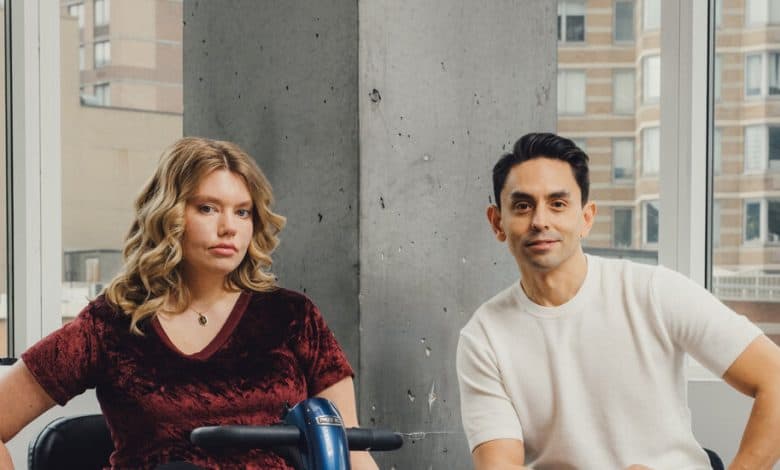What if the Disabled Characters Were Just Going About Their Day?

A bizarre thing happens when the actors Madison Ferris and Danny J. Gomez are out and about in public together, using mobility aids to get around: she a scooter, he a wheelchair. Inevitably, she said, strangers approach, presuming that the two are somehow in distress.
“People will be like, ‘Are you OK? What’s going on?’” Ferris said the other afternoon at the Pershing Square Signature Center in Manhattan, where they are starring in the New Group’s Off Broadway production of Laura Winters’s romantic comedy, “All of Me.”
And if several wheelchair users should roll down the street together, Gomez said, “then it’s like the circus is in town.” Such as the night a few friends of his from the Los Angeles dance team the Rollettes came to the play, and he and Ferris left with them afterward.
“Everywhere we went,” he said, “just stares, left and right.”
To Gomez, who was paralyzed from the waist down in a mountain-biking accident in 2016, that kind of othering underscores the need for theater, television and film to depict more disabled people, and do it more matter-of-factly.
“Then it wouldn’t be so weird in real life,” he added. “It would just be people going about their day. Like, I don’t stare at you when you’re with your group of friends.”
Not that “All of Me” is intended as pedagogical, but he does think it could help.